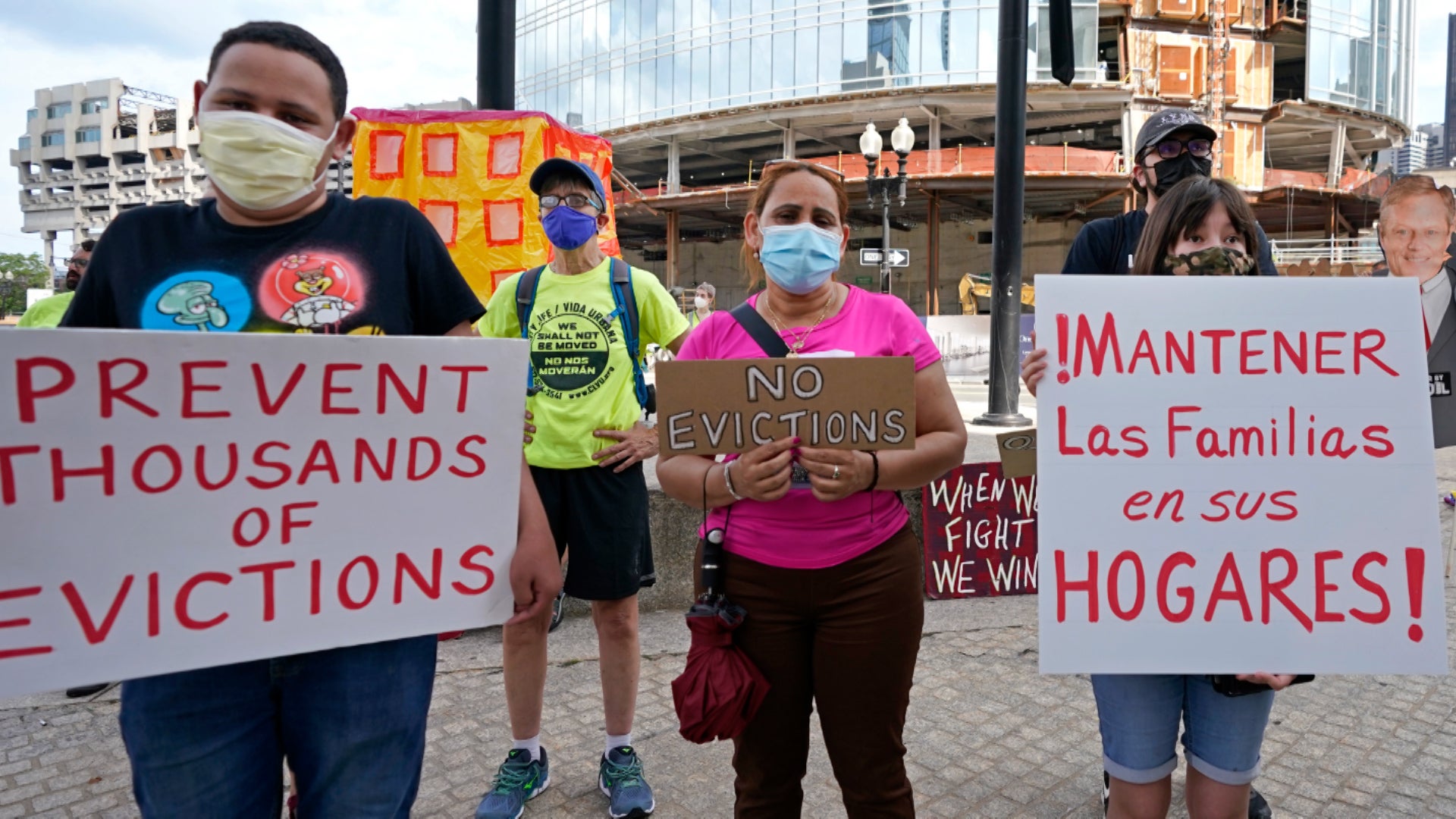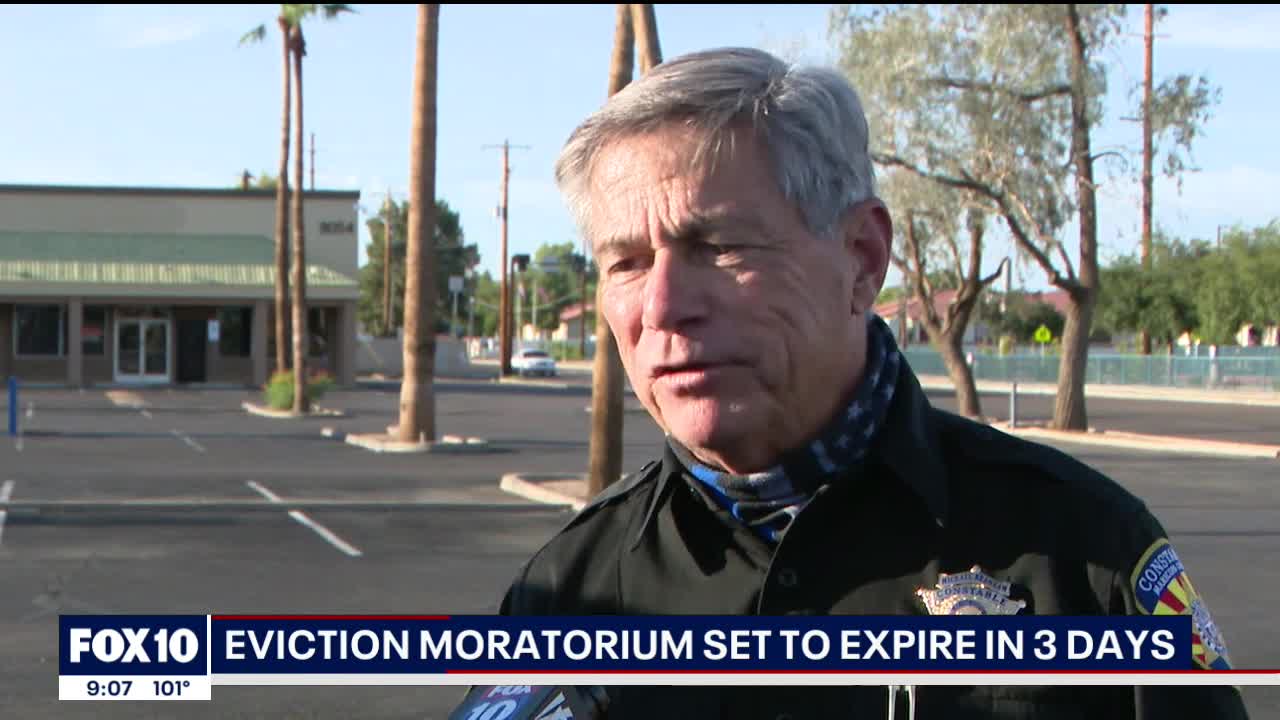DEMOCRATS FAIL 1
Pelosi calls on CDC to extend eviction moratorium unilaterally
BY MIKE LILLIS - 07/30/21 12:01 PM


As House Democratic leaders struggle to find enough party support to extend an eviction moratorium, Speaker Nancy Pelosi (D-Calif.) is advocating a temporary fix, urging the Biden administration to act unilaterally to help the nation's most vulnerable renters.
The Speaker said the Centers for Disease Control and Prevention (CDC), which has instituted a ban on evictions through the end of Saturday, should extend the deadline further, giving House Democrats more time to codify the extension in legislation.
"I think this is something that we'll work out. It isn't about any more money — the money is there, resting in localities and governors' offices across the country," Pelosi said Friday morning during a press briefing in the Capitol. "So we'd like the CDC to expand the moratorium. That's where it can be done."
The remarks come as Pelosi and other Democratic leaders are scrambling to locate the votes to extend the eviction moratorium legislatively — a request that President Biden made only Thursday.
The Rules Committee considered the topic on Friday morning, debating a proposal sponsored by Rep. Maxine Waters (D-Calif.), head of the Financial Services Committee, which initially would have extended the moratorium through the end of the year.
But a number of moderate Democrats are opposed to the bill — one put the number of Democratic opponents at 14 — citing the length of the extension. That opposition led Democratic leaders to shrink the window of the benefit to expire on Oct. 18, although it remains unclear if that concession is enough to win the support of the centrist holdouts.
"It is our hope that we could pass a bill extending the eviction moratorium to that date immediately," Pelosi wrote to Democrats Friday afternoon.
Meanwhile, Democrats of all stripes are grumbling that Biden waited until Thursday — just two days before the House is scheduled to leave Washington for a long summer vacation — to request that Congress take up the issue.
“I quite frankly wish he had asked us sooner,” said Rep. Jim McGovern (D-Mass.), chairman of the Rules panel, during a Friday morning hearing.
Biden's request came weeks after the Supreme Court, on June 29, had warned that the CDC lacks the authority to extend the moratorium beyond July 31 without congressional action.
Pelosi, however, has a different view. Calling the extension "an imperative," she said the House will eventually work out its differences and pass the Waters bill, which extends the moratorium through the end of the year.
"We are not going away from this issue, whether it's now or shortly thereafter," she said. "We're going to have to find a solution."
In the meantime, however, she's calling on the nation's governors to use billions of dollars Congress has already allocated to help renters — she put the figure at $46 billion in unspent assistance.
"The fact is, almost $50 billion was allocated — $46 billion. Less than 10 percent of that has been spent, around $3 billion," she said. "Why should the renters be punished for the fact that the system did not put money in their pockets to pay the rent to the landlords?
She also argued that the CDC does have the authority to extend the moratorium on its own — Supreme Court ruling or none.
"I think the CDC can," she said.
Scott Wong and Sylvan Lane contributed.
Updated 2:31 p.m.
House panel takes up long-shot effort to extend eviction moratorium
By Emily Jacobs
July 30, 2021 |

House Speaker Nancy Pelosi released a "Dear Colleague" letter calling on members to extend the eviction ban.Getty Images
A House panel will convene Friday morning to try to push a long-shot effort to extend the federal eviction moratorium after the Biden administration said it would let it expire Saturday.
The group will gather at 8 a.m. ET Friday, not long after House Speaker Nancy Pelosi (D-Calif.) released a “Dear Colleague” letter Thursday night calling on her members to honor the president’s request.
Warning that “families must not pay the price” for the slow distribution of congressionally approved funds, the top-ranking House Democrat went on to say, “Extending the eviction moratorium is a moral imperative — and one that is simple and necessary, since Congress has already allocated resources that assist both renters and housing providers.”
The White House confirmed earlier Thursday that President Biden would allow the moratorium to expire, but called on Congress to pass new protections due to the spread of the highly contagious Delta variant of COVID-19.
White House press secretary Jen Psaki defended the move, arguing the commander-in-chief’s hands were tied by a recent Supreme Court decision that found there would need to be congressional authorization to extend a CDC-imposed ban on evictions beyond July 31.
“Given the recent spread of the Delta variant … Biden would have strongly supported a decision by the CDC to further extend this eviction moratorium,” Psaki said in a statement.
“Unfortunately, the Supreme Court has made clear that this option is no longer available,” she added.
“In light of the Supreme Court’s ruling, the president calls on Congress to extend the eviction moratorium to protect such vulnerable renters and their families without delay.”
SEE ALSO
Supreme Court leaves CDC eviction ban in place through July 31
Rep. Alexandria Ocasio-Cortez (D-NY) slammed the Biden administration over the move to Punchbowl News on Thursday night.
“For the White House to do this right before we’re about to leave [on August recess] is just, it’s ridiculous,” the far-left pol said.
“I don’t want to hear any of the spin about how they’ve been trying this whole time, there has not been the advocacy, the voice, et cetera, that we needed to have on this issue. I sit on Financial Services, which has jurisdiction over housing, we have the secretary right there. And we asked about the administration’s stance. And we weren’t getting any commitment on advocacy for extension. So I’m not here for the excuses about how this is the court’s fault. This is on the administration.”
The CDC’s eviction moratorium was set up last year by President Donald Trump after Congress deadlocked on COVID-19 relief legislation that would have extended an initial legislated moratorium.
Although the CDC moratorium was legally dubious, Trump said he had to act due to partisan gridlock. Trump also unilaterally resurrected a federal unemployment supplement and paused federal student loan payments and interest.
A patchwork of state and local policies will replace the federal evictions ban, and the White House has said it’s encouraging states to adopt diversion plans for people who agree to get back on track with rent.
A wave of evictions could lower soaring real estate prices and allow owners to get back on their feet by getting rid of non-paying tenants.
But it’s also a political liability for Biden, who regularly emphasizes the effects of the pandemic on lower-income people, especially on mothers unable to work due to increased child care duties caused by schools closing.
It is not clear what the outcome of the Rules Committee efforts Friday will be. Even if such an effort was able to pass the House, it would face a bleak future in the Senate.
The Senate is split 50-50 between Republicans and Democrats, though Vice President Kamala Harris, as Senate president, has a tie-breaking vote.
Still, 51 votes are not enough under current rules to break through the filibuster, the Senate rule requiring 60 members to end debate on most topics and move forward to a vote.









